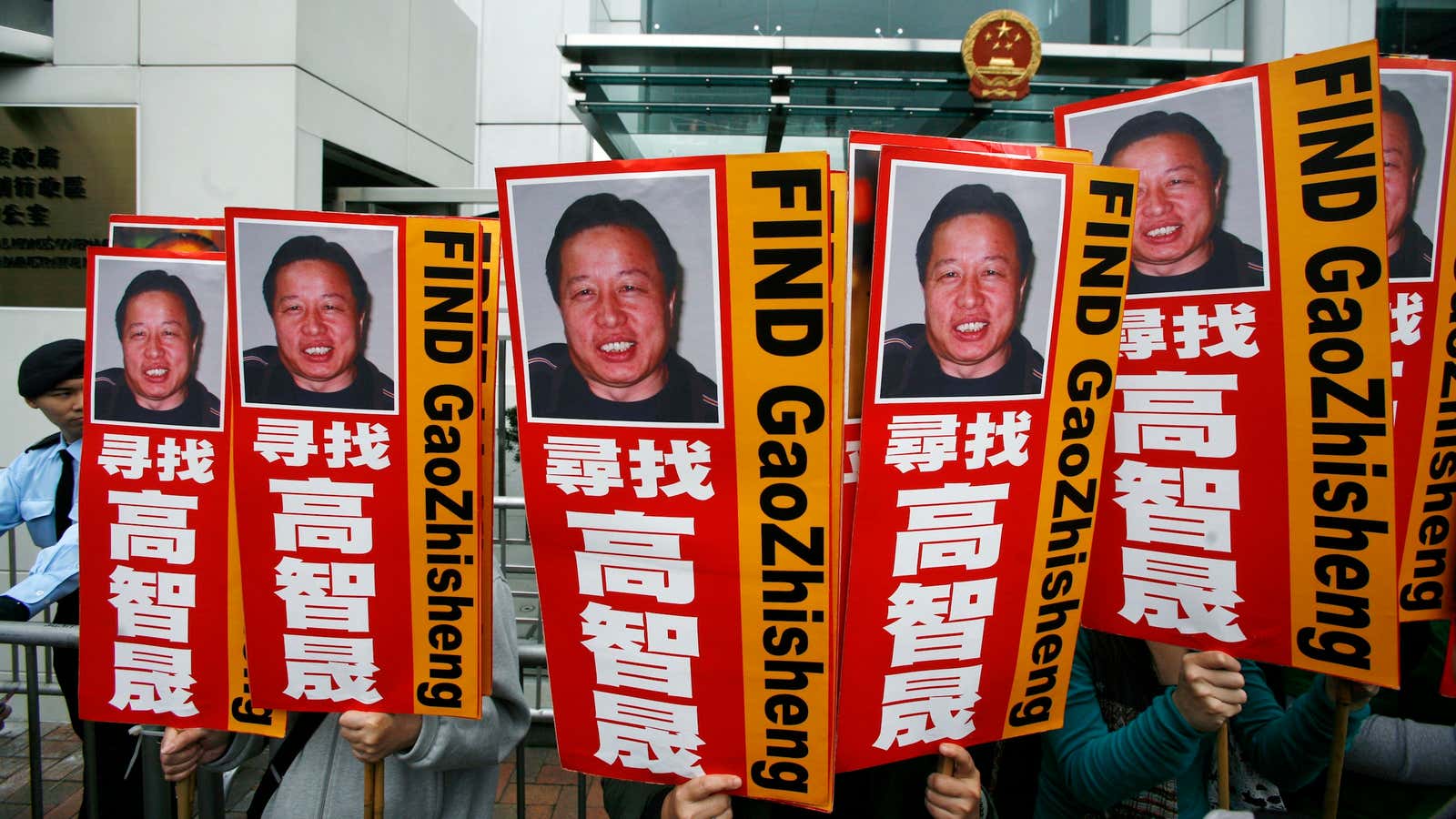Chinese human rights lawyer, Gao Zhisheng, known for defending the rights of Falun Gong members and farmers, was released today after three years in prison for “inciting subversion of state power.” Dissident Hu Jia, a friend of Gao’s, posted online that Gao has been released and was traveling with his brother back to Urumqi. A relative of Gao’s told Agence France Press that he had been released.
Activists worry that Gao will be released only to suffer another form of detainment, all too common in China, that in some ways can be worse than jail. “We fear that he would step out of the small door of the prison only to enter a larger prison in the hands of the state security, not only barred from returning to Beijing but also prevented from seeing his family and friends,” said Chinese rights lawyer Tang Jitian.
Japan’s Kyodo news agency reported that “members of China’s state security apparatus appeared to be following Gao as he left Shaya Prison in the Xinjiang Uyghur Autonomous Region, suggesting that he remains under surveillance.”
Over the last few years, Chinese authorities have taken to releasing high-profile activists from prison only to put them under extra-judicial house arrest, which has no legal basis but is widely practiced against dissidents. Ruanjin—literally “soft detainment”—ranges from being monitored constantly to being restricted from all communication with the outside world, as has been the case with Liu Xia, the wife of Nobel Peace Prize winner Liu Xiaobo. Other activists like Chen Guangcheng, who was under house arrest for two years before escaping to the US embassy, reported suffering repeated beatings by his minders. Gao was previously under house arrest in 2006.
“Anyone who leaves prison isn’t completely free. They are always under surveillance, sometimes it takes the form of guards outside your front door, or showing up every once in a while to threaten you,” Frances Eve, a researcher for Chinese Human Rights Defenders, told Quartz.
House arrest allows officials to control and monitor the movements of dissidents without as much international and domestic scrutiny. “It’s hard to generate national outcry if you are in house arrest. It’s hard to know what is going on,” Maya Wang, a China researcher with Human Rights Watch told Quartz.
Gao’s release comes at a time when the government has been especially harsh on activists, sentencing three to prison in June for calling on officials to disclose their assets, and detaining outspoken writers. “Gao Zhisheng is being released during a major crackdown on civil society, so that doesn’t give you much hope that Gao will be treated much better,” Wang said.
